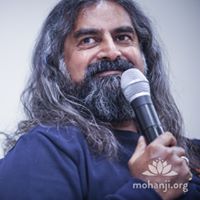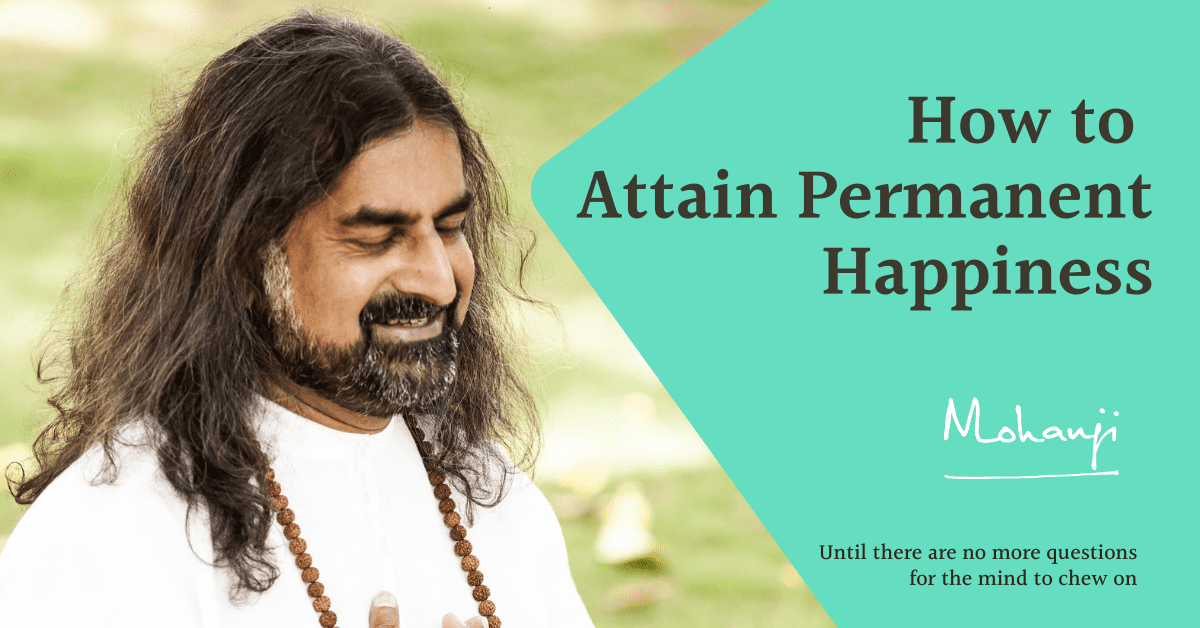We all know deep inside, chasing the paltry pleasures of life is not life. We know there is something deeper. We all know, we all feel that there is something deeper and profound in this existence. And many times, we feel that what we’re doing is not the right thing. That’s why people will ask the question, what’s the purpose of my life?
Well, karmically the purpose of your life is every moment experience; the waking state experience, the dream state experience and the deep sleep state experience. Sum total is life. We express what we are to the world outside, and that’s also part of the purpose of our existence. But we know deep within, we feel that this is not what the whole thing is about. These pleasures are temporary, they come and go. And then we crave for more. Then it becomes a habit, then it becomes an addiction. Like that it goes, going round and round, it doesn’t evolve. We go for the familiar likes and dislikes. So, we have this continuous need for pleasures. But at the same time, we are not happy. We are happy when pleasures are accomplished. Familiar situations make us happy. Comfort zones make us happy and we crave for it. If that’s taken away, we feel like a fish out of water. That’s a very scary feeling, you know. People become restless and people become insecure.

So, we are experiencing a situation like that, now, with this lockdown happening. We do not know what to do. We don’t have the usual freedom which we are used to, for a long time. So we feel, how do we handle this? It’s a very good time to get back to yourself and ask this question. It is a good time to ask a good question. What is a good question? What makes me really happy? What is happiness? What makes me really happy?
None of these recurring needs for certain pleasures is making us happy. They’re making us feel okay. That’s not happiness. Happiness is a permanent state. That question happened in everybody’s mind at some point in time. And this is an inevitable question.
When the great masters went deep inside exploring this question over time, again and again, they realized a few things. One of the major things is the cause of sorrows. The cause of sorrows, they narrowed it down to dependencies, deep expectations and fears. These are the causes of sorrows, major causes of sorrows. There are many minor causes but a major cause of sorrows are expectations and dependencies, as well as fears, and then, they started working on them.

First and foremost, what are dependencies? We are dependent on so many things in life, including the dress we wear, the food we eat, the places we are used to, the relationships that we have, and the environment, spaces, time, and so many factors. And these are the things which are very detrimental for us; to leave the usual patterns and reach a state of freedom with no patterns. What they found through contemplation, they could correct also through contemplation, by going individually, facing each fear, understanding each dependency, accepting each expectation.
So, while understanding each dependency, they realized that they are all connected to certain notions of pleasure. If I have this person with me, I am happy. If the person goes away, I feel insecure. If I have this relationship; if the person is happy with me, I’m happy, if the person is not happy with me, I’m sad. Like that, there are so many permutations, combinations which we have created for ourselves. So, they found that all these relationships had an element of conditionality; that so many relationships are very conditional and it’s related to a certain time, space, moods, so many factors. So, there is no continuity there. How can you change that? Make all relationships unconditional. That solves that issue, which means less expectation.

Give more than what you take. So, if you require less from people, from the relations, then you’re free. So, freedom is connected to the expectations of a certain nature. If expectations are less, we have more freedom. Likewise fears. Many fears that we have, have no root. They are connected to certain notions, certain beliefs and certain things which we have picked up from society, from education, from people, and from religion. So, these fears, they bind you because you don’t do anything about it. Then they realized that it is good to face those fears, address them, look into the eyes and accept them. The moment you start looking into your fears; you’re not afraid of your fears anymore. Fears wither away. So, every dependency every addiction, every pattern, they are all kind of staying there because we don’t address them.
So individually, contemplation has a lot of value. We contemplate on it, and we come to terms with it. We start accepting ourselves more and more, and we start doing things in a non-reactive way; we don’t react. We don’t react at all. We respond. And we do not resist. Instead, we accept.
This became a big help. And that’s the way they guided the next generations. These masters guided the next generations to accept themselves, assimilate themselves and have permanent happiness, freedom.
Permanent happiness is a possibility when the dependencies are fewer, expectations are less, acceptance is more, fears are less or fears are taken care of. If we go into that kind of a mode, then, we do have the possibility of a permanent happiness state. Permanent happiness is when the mind is not running after needs, requirements, and wants; when the mind is stable and peaceful. That’s when the permanent happiness happens. So permanent happiness is a state which is definitely achievable to every individual. For this, the step is not meditation, it’s contemplation, introspection, acceptance.

Transcribed by Ulla Bernholdt
Proofread by Rekha Murali
How to add subtitles:
On a mobile:
Click the three dots at the top right corner, choose Captions – English (or other available language)
On a computer:
Click on a setting icon at the bottom right corner, choose Captions – English (or other available language)
For more information about Mohanji, please visit Mohanji.org

